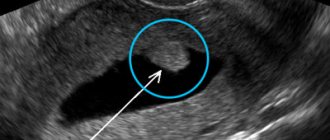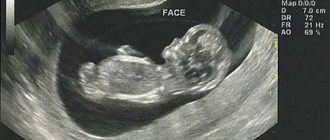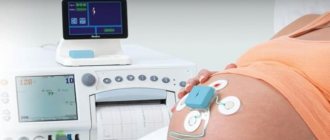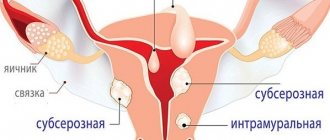The world of a modern woman is always full of important events, meetings and an endless series of pre-planned activities. When pregnancy occurs, many planned events may be moved from “expected” to “impossible” or simply postponed indefinitely. It is quite difficult to worry in advance and reschedule an important event for the most appropriate time, because planning events against the backdrop of pregnancy is a very difficult science.
Therefore, when pregnancy occurs, it is advisable to draw up at least an approximate “life plan for 9 months.” For example, it is known that maternity leave is most often preceded by unspent regular leave, and registration for pregnancy is preceded by the fact of establishing an established and normally developing pregnancy.
Many events will now depend on how the new life develops. Thus, when a diagnosis of multiple pregnancy is made, not only the expected due date will change, but also maternity leave will begin 14 days earlier, and with it the start of unspent leave will move. Therefore, one of the first steps when a desired pregnancy occurs is to undergo an ultrasound examination (ultrasound). Scientific and technological progress is rapidly changing the whole world, including the state of the prenatal ultrasound diagnostic service. Opportunities are changing, and along with them, the timing of research, which is what I would like to dwell on in more detail.
Feelings in the first week of pregnancy
In our pregnancy calendar, you, along with thousands of other expectant mothers, will go through an amazing and lifelong journey of forty obstetric weeks. This will be a happy and prosperous journey, starting from the first day of the last menstruation and ending with the long-awaited and most joyful birth of the baby.
Let’s immediately make a reservation that obstetric weeks are usually counted from the first day of the last menstruation, and the embryonic weeks of “interesting position” take their starting point from fertilization. In our calendar, in accordance with advanced medical science, we count obstetric weeks.
From our calendar you will learn what happens in your body in the 1st week of pregnancy and at each new stage, how the fetus develops and grows, you will receive useful recommendations, you will see encouraging videos, expectant mothers will share photos of their bellies, ultrasound images, their impressions and symptoms . There will be a ton of useful information, we guarantee.
The first obstetric week of pregnancy, as you already understand, precedes conception, so the woman should not have any unusual sensations.
There can be no signs of pregnancy at 1 week according to the obstetric counting method. They will appear 14 days later.
Stay up to date with all the changes every week of pregnancy
Receive letters about the baby's development and the mother's condition once a week.
It is important!
- You should see a gynecologist regularly in order, firstly, to detect pregnancy in time, and secondly, to track and eliminate the slightest irregularities.
- You can ask your gynecologist what other doctors you should visit. Endocrine disorders, metabolic problems, excess or underweight can affect conception.
Taking vitamins.
If your body doesn't have enough nutrients, your chances of getting pregnant may decrease. In the case of severe vitamin deficiency or lack of weight, menstruation, and with it ovulation, simply does not occur, that is, fertilization is impossible.
Embryo development
Many thousands, and even hundreds of thousands, of young girls, as soon as the test shows the coveted two stripes, rush to type in a global network search engine the query: “the first week of pregnancy - embryo development.” They can’t wait to read how the unborn child is doing under their hearts, as soon as they learned about their “interesting situation” and the prospect of carrying a little Miracle inside them for the next nine months. This is the eternal maternal instinct from Mother Nature.
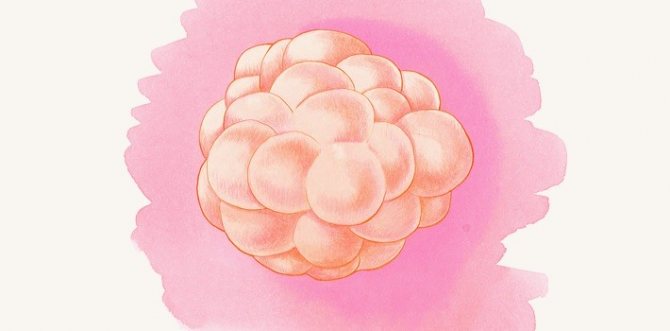
However, as we said in the previous section, 1 week of pregnancy according to the obstetric counting method (not to be confused with 1 embryonic week of pregnancy, which will occur 14 days later) PRECEDES not only fertilization, therefore the birth of an embryo in the body of the expectant mother, but also ovulation, necessary for conception, for the sperm to reach the egg.
Life will begin under the heart of a young girl only between the second and third obstetric weeks of pregnancy.
If you really can’t wait to find out about the development of the fetus inside you and what it looks like, the correct way to write it in a search engine is the development of the embryo in the 1st embryonic week of pregnancy.
Signs and symptoms of pregnancy in the first week

According to the week counting system (obstetrical) chosen by our calendar, strange as it may sound, in the first week of pregnancy the pregnancy itself has not yet occurred, a cycle has simply emerged in the female body, favorable for preparation for conception and, as a consequence, pregnancy. But in order not to waste time, it’s time to give the expectant mother useful information about what pregnancy symptoms she should expect in the 1st week after conception.
So, the first week of pregnancy is characterized by the following signs and symptoms:
- It is acceptable for the expectant mother to feel slightly unwell with symptoms similar to a cold, but without a high fever.
- During the day, the mood can change dramatically several times with a high amplitude (from tears to laughter). Hormones in a woman’s body make her emotional mood extremely unstable in a short period of time.
- Sleep may be disrupted. If a girl wakes up unreasonably early, she may feel the desire to sleep more all day long. The feeling of lack of sleep intensifies the ailments from the first point, adding to them weakness and fatigue.
- There is a possibility that a pregnant girl will feel heaviness in her lower abdomen. This is due to the fact that now a larger volume of blood is supplied to the uterus than usual.
- In addition, the likelihood of headaches of varying intensity and severity is acceptable.
- Touching the mammary glands can be painful for a girl.
- Many expectant mothers at this stage of pregnancy note an increased appetite.
- It is possible that early toxicosis will already make itself felt, manifested by short-term attacks of nausea in the morning.
- The urge to urinate may become more frequent.
- There is a small chance that a girl will feel discomfort in the lower back at this stage.
It is not at all necessary that all ten of the listed early pregnancy companions immediately “attack” you after fertilization. Not at all. Each female body is individual.
Most likely, in the 1st week of pregnancy after conception, you will notice only pain when touching your breasts and active mood swings. And everything else will pass you by. You should hope for the best and prepare for the worst. Under no circumstances should you program yourself that all this wealth of symptoms and signs will “fall” on you in full. Stay positive!
Remember, at any stage of the “interesting situation” it is very important for the expectant mother to be in a comfortable psycho-emotional state. Do not think about bad things, do not get involved in conflicts, avoid stress and strong experiences. Everyone should “work” for the positive mood of a pregnant woman: spouse, parents, close relatives, friends, neighbors, colleagues, doctors and everyone.
It is important!
The method should be applied in the morning: this increases its reliability.
If there are gynecological diseases or errors in the procedure, it can give false results, and this must be remembered. If you have any doubts, it is recommended to consult a doctor. Blood for hCG.
Among all the analyses, this one is considered reliable and at the same time accessible. The hormone hCG (human chorionic gonadotropin) begins to be produced by the female body immediately after conception, but its level becomes noticeable about a week after implantation of the fertilized egg. Its concentration in the blood is higher than in the urine, which increases the information content of the analysis. As a rule, a gynecologist sends a patient for testing if there is a possibility that she is pregnant. The analysis can be carried out independently with the help of specialized medical centers, but it is recommended to do this under the supervision of a doctor - he will be able to analyze the results and give the patient a detailed answer about her condition. Diagnosis should be made no earlier than a week after the expected conception.

Determining the exact date

In the first obstetric week of pregnancy, as we have repeatedly said above, sexual intercourse between future parents with the aim of fertilizing the egg has not yet occurred. In fact, the pregnancy has not yet begun. The exact date will most likely be able to be skillfully and competently determined by your local gynecologist when you go to the antenatal clinic to register.
Now let's once again talk through the sequence of events and the corresponding weeks of pregnancy according to the obstetric reference system.
For this we will use a numbered diagram. The number will indicate the obstetric week of pregnancy.
- The menstrual cycle of an expectant mother.
- Ovulation in the female body.
- Fertilization of an egg during sexual intercourse of future parents.
- The fertilized egg moves down the fallopian tube, dividing from the zygote to the blastocyst, and is implanted in the endometrium of the uterus.
- A simple pregnancy test based on hCG levels may show two lines.
- Education and development of the embryo.
Ultrasound of the fetus at 1 week of pregnancy
An ultrasound of the fetus in the first obstetric week of pregnancy, as you yourself understood from the diagram above, is not done. This is completely meaningless until fertilization and sexual intercourse for the purpose of conception between future parents. However, ultrasound examination is permissible during the first embryonic week of pregnancy (corresponding to the third obstetric week) in order to confirm pregnancy.
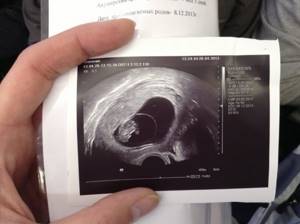
Abdominal pain
Abdominal pain in early pregnancy is a common symptom. Of course, not during the first or second obstetric week, but somewhat later. The uterus will be supplied with blood more actively and week after week it will actively grow, putting pressure on the bladder and other internal organs. Nowadays, a woman can experience pain in the abdomen only if it is her usual pain during menstruation.

Nausea
In the first obstetric week of pregnancy, at the very beginning of your happy journey to motherhood, there can be no early toxicosis or nausea, because fertilization has not yet occurred. A woman’s body is only preparing for its “interesting situation.” If you are experiencing nausea during this period, this is not a sign of pregnancy, but most likely a consequence of some problem in the digestive system.
Mood changes
During the first obstetric week of pregnancy, corresponding to the start of the first trimester of the “interesting situation” and the very beginning of the first obstetric month of pregnancy, there should be no mood swings or changes. Unless this is individually characteristic of this particular girl at the beginning of the menstrual cycle.
Mood changes in the early stages of pregnancy are usually caused by hormonal changes in the body of the expectant mother.
Of course, it cannot begin before fertilization, that is, until pregnancy actually occurs.

Many women in the early stages of pregnancy are susceptible to this psychological problem - during the day the mood changes dramatically several times: from tears and negative experiences to incredible joy and laughter. New hormones in the body of the expectant mother, according to the laws of Nature, thus prepare the woman for a new status and strengthen her psychological immunity.
Decreased performance
In the early stages of pregnancy, expectant mothers may experience a decrease in performance. This can be facilitated by: sleep disturbance, a feeling of weakness, fatigue and lack of sleep, sudden changes in psycho-emotional mood, and sometimes the pursuit of all kinds of “pregnant” phobias and fears. This is absolutely normal.

Both physiologically and psychologically, a woman must rebuild and prepare for her new status as a mother - the most important person in the life of the unborn child, responsible for his health, well-being and happiness.
In order to prevent a decrease in performance from disturbing the usual daily routine, it is very important not to succumb to bad thoughts, fears and unnecessary experiences. Keep your spirit up for the best!
It is important!
- The sperm is able to reach the egg pushed into the fallopian tube in about 2 hours, after which fusion occurs.
- One sperm, the first to penetrate the membrane, merges with the egg, after which it becomes impenetrable to others. A zygote is formed - a cell from which the embryo will begin to develop.
Implantation of fertilized egg.
Over the next few days, under the influence of muscle contractions and cilia of the mucous membrane, the fertilized egg moves towards the exit of the fallopian tube, that is, to the uterus. Around the same period, the process of fragmentation begins: the cells of the zygote begin to divide, but its overall size does not increase, each subsequent cell becomes smaller than the previous one. Having descended into the uterus, the zygote reaches the blastocyst stage in a few days, after which it gets rid of the membrane and is implanted inside the endometrium - the lining of the uterine walls. Under the influence of the hormone progesterone, aimed at maintaining pregnancy, the endometrium becomes thicker and surrounds the fertilized egg on all sides. Implantation allows you to protect the embryo and additionally nourish it with the secretion produced by the endometrial glands. Several days usually pass from conception to implantation, and the countdown of the first embryonic week does not begin with it, but with the formation of the zygote.
Possible problems
As we said, in the first week of pregnancy, according to the obstetric counting method that we chose in our calendar, pregnancy did not actually occur. The menstrual cycle is still going on. After this, the egg matures, and only then (after 12-16 days) fertilization. Therefore, there is no point in talking about possible problems in the first two weeks. It is better to prepare the expectant mother for possible problems in early pregnancy.
The key word here is “possible”. It is absolutely not necessary that all of the above, or even part of it, will affect you. Each organism is individual.
There is a high probability that the following ailments will not bother a pregnant girl.

Hypothetical problems in early pregnancy include:
- Thrush during pregnancy, accompanied by itching and curdled discharge.
- Early toxicosis, accompanied by morning nausea, low appetite and poor health.
- Frozen pregnancy, the likelihood of which is extremely low if you follow all the recommendations of specialists.
- Frequent urination due to the growing uterus putting pressure on the bladder.
- Constipation.
- Spontaneous abortion, or miscarriage, which also happens extremely rarely if all the rules are followed at the stage of pregnancy planning and the actual bearing of the child.
- Swings and sudden changes in mood.
- Sleep disturbances, feeling of lack of sleep, weakness and fatigue.
Set yourself up for a positive wave. We have listed what is most likely to occur in pregnant women in the early stages. Aware means armed. The birth of a healthy child largely depends on the positive attitude and optimism of the expectant mother!
Carrying out an ultrasound procedure in the EU clinic
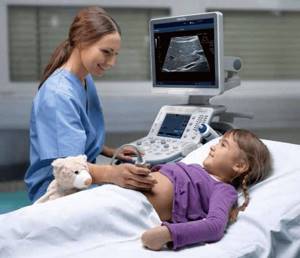
Almost any ultrasound is performed as follows:
- First, the area to be examined is freed from clothing.
- Then the child sits, lies down or stands in the desired position.
- The gel is applied to the patient's skin, and then the area of interest is examined using a sensor.
- The image is displayed on the monitor.
The procedure lasts on average 20-40 minutes. The results of the study are deciphered and explained in detail to the child’s parents, then treatment is prescribed.
Using ultrasound, you can identify cardiovascular diseases, anatomical and physiological abnormalities of the brain, soft tissues, gastrointestinal tract, nervous and genitourinary systems, thyroid gland, spleen, joints, and spine.
Useful tips and recommendations for the expectant mother
The birth of a new life is coming inside a woman, and measures taken to preserve her health during this period are more important than ever. Therefore, at this time it is important to find out what is not allowed in the first week of pregnancy. If you haven't done this before, start right now, and this will definitely have a beneficial effect on your baby's development in the future.
- Probably the most important warning is to avoid all possible ingestion of poison into a woman’s body. That is, smoking and alcohol in the first weeks of pregnancy should be completely avoided.
- All medications that a woman is forced to use for one reason or another must be approved by a doctor. Everyone knows that many medications can cause irreversible processes in a woman’s body. Therefore, it is unacceptable to take medications without a doctor's permission.
- Try to avoid X-ray exposure of the abdominal organs. Such research is carried out only when absolutely necessary!
- Stressful situations negatively affect the health of the expectant mother, so it is advisable to solve all problems that arise peacefully. Don't quarrel with your loved ones, don't conflict with your employees! It would be much better to create a cozy romantic atmosphere at home with your husband, because sex in the first weeks of pregnancy will not only allow you to relax, but will also strengthen your relationship with your spouse in the intimate sphere.
- Avoid contact with sick people as much as possible. It is important to dress warmly during the cold season and protect yourself from colds and various diseases that can cause an increase in temperature, which is extremely undesirable in the first weeks of pregnancy. The notorious garlic and onions come to the rescue here - the best means of preventing colds in the first weeks of pregnancy.
- To strengthen the immune system and enrich the body with missing microelements, it is recommended to take vitamins already in the first weeks of pregnancy. But don’t forget about proper nutrition, which is so important. The diet must include vegetables, fruits, grains and dairy products. It is especially important to pay attention to the folic acid content in foods, which will help prevent birth defects and promote normal fetal development.
It is important!
- There are ready-made vitamin courses designed to increase the likelihood of conception. If no serious abnormalities requiring observation by a doctor are identified, you can use them.
- This point also applies to men: the state of the body directly affects the motility and viability of sperm, as a result of which they may lose the opportunity to reach the egg.
- If your doctor does not recommend vitamins in a particular case, it is better to listen to his words. It is also worth choosing supplements after consultation with a specialist.
Nutrition.
Problems leading to failure to conceive are often caused by insufficient or unhealthy nutrition. For pregnancy to occur, an optimal weight is necessary: a lack of it leads to inhibition of reproductive processes, while an excess is harmful to the normal production of sex hormones.
Nutrition for the expectant mother

The future mother's diet throughout pregnancy, in general, and in the early stages, in particular, should be varied, balanced and healthy. You will have to give up smoked, spicy, fried foods. Preference should be given to steamed, stewed and boiled dishes. More fresh vegetables and fruits, herbs and berries. It is advisable to abstain from carbonated drinks (lemonade, Pepsi and cola). Do not overuse coffee, chocolate, citrus fruits and honey (foods with a high risk of allergic reactions). To avoid toxicosis, it is better to eat meals in fractions – often and in small portions. Five to six times a day. Lean on dairy products - a source of calcium, and boiled meat and seafood - a source of protein.
